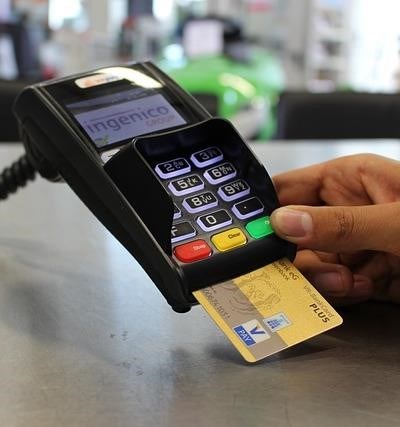
Let’s talk about building credit. It’s crucial for your financial future‚ impacting everything from loan approvals to rental applications. Many people believe building credit takes years‚ but with the right strategy and the right card‚ you can accelerate the process. This isn’t about getting «fast credit» in a reckless way; it’s about responsible credit use leading to a healthy credit score.
Understanding Credit Building
Your credit score‚ often represented by the FICO score‚ is a numerical representation of your creditworthiness. It’s based on several factors: payment history (the most important!)‚ credit utilization (how much of your available credit you’re using)‚ length of credit history‚ credit mix (different types of credit)‚ and new credit (recent credit applications). Improving your credit history means focusing on these areas.
Secured vs. Unsecured Credit Cards
For those starting their credit journey‚ secured credit cards are excellent. You deposit a security deposit (which acts as your credit limit)‚ minimizing the lender’s risk. This makes approval nearly guaranteed‚ even with a limited or nonexistent credit history. Once you demonstrate responsible credit use‚ you can graduate to an unsecured credit card with higher credit limits and potentially better rewards.
Best Credit Cards for Beginners
Finding the best credit cards for beginners involves considering factors beyond just rewards. Look for cards with:
- Low annual fees (or no annual fee)
- Clear terms and conditions
- Simple rewards programs (to avoid confusion)
Many institutions offer student-specific cards – the best credit cards for students often have features designed for managing finances while in school. Keep in mind that no credit check credit cards are less common and usually come with higher fees.
Strategies for Building Credit Quickly
Here are some key strategies for building credit quickly and raising your credit score:
- On-time payments: This is paramount. Late payments severely damage your credit score.
- Low credit utilization: Keep your credit utilization below 30% of your total credit limit.
- Monitor your credit report: Regularly check your credit report (from sites like AnnualCreditReport.com) for errors.
- Consider debt consolidation: If you have multiple debts‚ consolidating them into one payment can simplify management and potentially improve your score.
Remember‚ responsible credit use is key. Avoid applying for too many cards at once (this negatively impacts your credit score). Focus on making small purchases and paying them off in full and on time each month. Building credit takes time‚ but with a well-chosen card and diligent effort‚ you can significantly improve your credit score improvement faster than you might think. Always read the fine print before any credit card application and understand the terms. A good credit score opens doors to financial opportunities – make it a priority!
Beyond the Basics: Mastering Credit Building
Now that we’ve covered the fundamentals‚ let’s delve into more advanced strategies for accelerating your credit building journey. Remember‚ while «fast credit» is appealing‚ sustainable‚ responsible credit use is the ultimate goal. A high FICO score isn’t just about numbers; it reflects your financial discipline and trustworthiness.
Strategic Card Selection: Beyond Beginner Cards
Once you’ve established a positive payment history with your secured credit card or a starter card designed for those with limited credit history‚ it’s time to consider upgrading. Graduating to an unsecured credit card opens doors to better credit card rewards and potentially higher credit limits. However‚ don’t jump into a card with a hefty annual fee before you’re ready. Carefully evaluate the terms and conditions of any credit card application before you commit.
Optimizing Your Credit Utilization
Your credit utilization ratio – the percentage of your available credit that you’re using – significantly impacts your credit score. Aim to keep this ratio below 30%. For example‚ if you have a $1000 credit limit‚ try to keep your balance under $300. Even better‚ strive for utilization below 10%. This demonstrates responsible credit use and signals to lenders that you manage your debt effectively.
The Power of On-Time Payments: Consistency is Key
I cannot stress this enough: on-time payments are the bedrock of a strong credit score. Even a single missed payment can negatively impact your credit report and significantly hinder your credit score improvement efforts. Set up automatic payments to avoid accidental late payments. Consider setting reminders on your calendar or using budgeting apps to stay on top of your due dates.
Addressing Debt: The Role of Debt Consolidation
If you’re juggling multiple debts with high interest rates‚ debt consolidation can be a valuable tool. By consolidating your debts into a single loan or credit card with a lower interest rate‚ you can simplify your payments and potentially improve your credit score over time. However‚ remember that responsible credit use remains crucial even after consolidation. Ensure you can comfortably make your monthly payments without jeopardizing your financial stability.
Regular Credit Report Monitoring: Know Your Score
Regularly reviewing your credit report from all three major credit bureaus (Equifax‚ Experian‚ and TransUnion) is essential. This allows you to identify and dispute any errors that could be negatively impacting your FICO score. You’re entitled to a free credit report annually from AnnualCreditReport.com. Understanding your credit report is vital for proactive credit score improvement.
Beyond Credit Cards: Diversifying Your Credit Profile
While credit cards are instrumental in building credit‚ diversifying your credit profile can also be beneficial. Consider responsible use of other credit products‚ such as installment loans (like personal loans or auto loans)‚ to demonstrate your ability to manage different types of credit. Again‚ responsible credit use is paramount.
Understanding the Nuances of «No Credit Check» Cards
While the allure of «no credit check credit cards» is strong‚ especially for those just starting their credit building journey‚ be cautious. These cards typically come with higher fees and interest rates. They are rarely the best option for long-term credit building. Focus instead on building credit responsibly through other means.
The Student Advantage: Best Credit Cards for Students
Many financial institutions offer best credit cards for students‚ often with lower credit limits and simpler reward structures. These are excellent entry points into the credit world‚ specifically designed to help students build responsible credit habits. Look for student-specific cards with competitive terms and fees.
Patience and Persistence: The Long Game of Credit Building
Building a strong credit history takes time and consistent effort. Don’t get discouraged by slow initial progress. By following these strategies and maintaining responsible credit use‚ you’ll steadily see your credit score improvement and achieve your financial goals.

